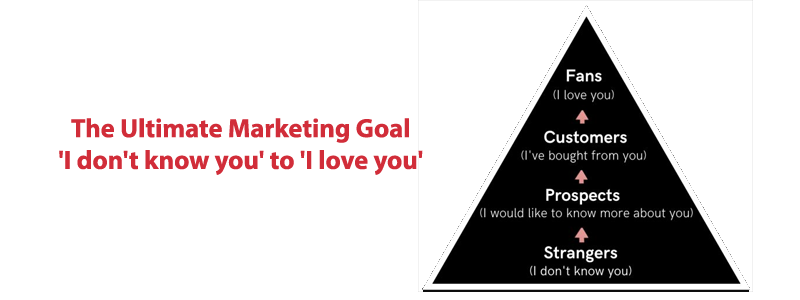My wife had referred 10-15 of our family members to our homoeopathy Doctor Sundar.
Doctor Sundar runs a small homoeopathic clinic and doesn’t have a full-fledged loyalty or rewards program (like corporate marketers) for his patients.
Then, what has triggered my wife to refer our family members to him?
When I interrogated her, she said?
- Doctor Sundar remembers every patient by his name.
- During each follow-up session he recollects the patient history intuitively (without referring to the records).
- He never recommends unwanted medicines.
- He would subdue the fear of the patients and instil confidence in them.
Dr Sundar's service mindset and personalized engagement with his patients is unusual.
He has engineered marketing into his service. It has become the prime driver of return business and referrals.
Here's another personal experience.
There are two pharmacy stores close to our home.
One is a corporate pharmacy chain that has more than 200 outlets across the country.
Another one, the standalone, local pharmacy shop - Ram Medicals that has been around for more than 20 years. Run by Ramakrishnan who has not even completed his degree.
Ram Medicals' store reps Ganesh and Victor know their customers by the name and know all their family members.
The reps do not just sell medicines, they chat with the customers informally and engage with them.
If prescribed medicines are not available, they make a note of them and ensure it is delivered within a day.
Ram Medicals has not invested in any tech platforms to engage with their customers. They do not run any reward programs.
But, when I did a small research, I found, they have the highest revisits, repurchases and loyalty among their customers.
On the other side, when you enter into the corporate pharma outlet, you would instantly sense the transactional nature of their staff.
No smile and warmth.
You wouldn't find the same staff working continuously for more than a month.
They capture the customer data and send transactional SMS / email pushes.
They have reward points to increase the purchases.
But all these efforts go in vain.
Why?
There is tech. There are tactics. But there is no human connection.
What seems so fundamental is often ignored in big businesses.
What businesses need to understand is the deeper and personalized customer engagement is higher than the repeated business.
You cannot build a loyal customer base by developing a conventional rewards program. There is no scarcity for them in the market.
Across all businesses, there is a chunk of reward points simply lying in the customer accounts without usage.
Because people don't care about it.
All they need is a great product and a delightful customer experience.

The ultimate goal of marketing is to turn a strange person into a fan – a loyal customer who loves to do business with you.
Loyal fans buy more, evangelize the brand, are less price-sensitive and don't easily switch to the competitor brands.
They are usually limited in number. We need to distinguish and handle them differently.
Boston Consulting Group's "Rule of 2-20-80-150” says, 2% of loyal customers are personally responsible for a full 20% of a company’s sales. But when their advocating friends and acquaintances is taken into account, they are responsible for a total of 80% of sales. This combination of loyal customers' own purchases and their recommendations to friends delivers up to 150% of a company’s profits.
Every business that aspires to attain non-linear growth and ought to concentrate on developing a loyal customer base.
As Steve Jobs said, “you've got to start with the customer experience and work back toward the technology – not the other way around.”
Entrepreneurs and marketers who get this underlying principle and execute around it will function well than the ones who run aimlessly behind technology and cool new tools.
About the Author
Rajesh Srinivasan is a Marketing Strategist, Author and a Keynote Speaker. He currently works as a VP-Marketing for a real estate start up in Chennai.